How the Nazis Really Treated Alcohol During World War II
Recently, rumors have been spreading very often that during the Great Patriotic War, the Red Army soldiers always went on the attack “under the degree”. Allegedly, everyone was drunk, so they were never afraid of the enemy. In fact, as we all understand, this is a profound delusion and we were not afraid only because we were defending our native land, family and people. Yes, no one canceled the “People’s Commissar’s hundred grams”, they really existed. And it happened that they were really given before the decisive attack. But, according to the veterans, they preferred not to use it before the attack, leaving it for later to remember their comrades who died in battle. Everyone was well aware that each of them could become such a comrade in the upcoming attack. Well, what about the Germans in this regard? Didn’t they take it on their chests, as they say? Could it be that everything was so correct and disciplined for them? Let’s read about it in the memoirs of the Germans themselves.
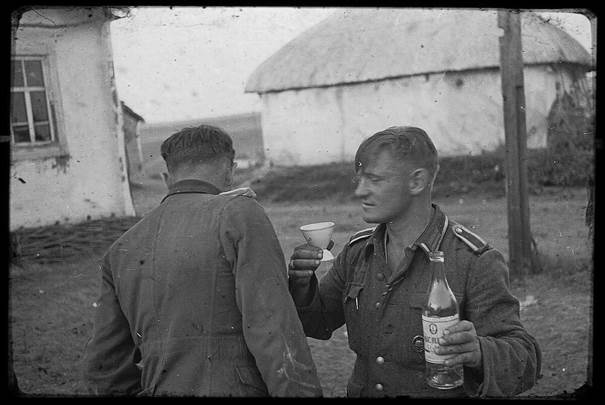
“At the front, we had as much vodka, schnapps and liquor as machine guns and cartridges for them. In this way, it was easier to make a hero out of any soldier. The fact is that alcohol dulls the brain and creates the appearance that strength is being added. For two days in a row, you indulge in alcoholic oblivion and no longer remember your wounds, you go on the attack again.” (Guy Sayer, “The Last Soldier of the Third Reich”).
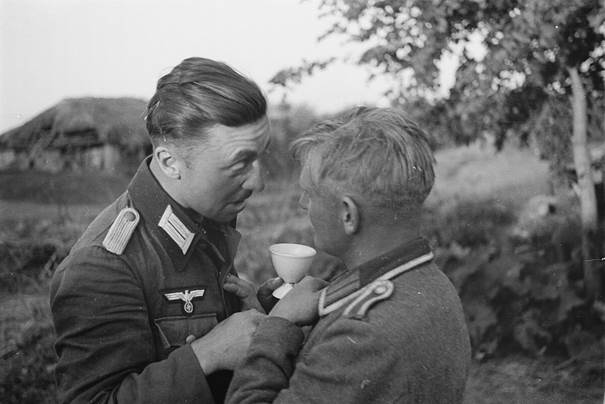
“We live well, our food is regular and decent. We get a lot of tobacco, and also a bottle of alcohol for three people, which we drink for the health of the Fuehrer.”
“Initially, we were given alcohol only on Sundays and consisted of a small dose of schnapps, the so-called Sunday ration. But, after 1943, the situation began to change dramatically. For example, a sudden increase in the portion of alcohol never made us very happy, because it spoke of an imminent heavy offensive” (Armin Scheiderbauer, “Memoirs of the War”).
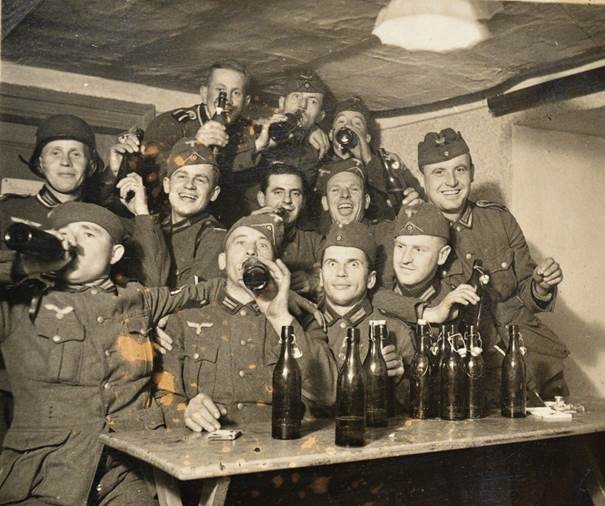
“One night, a field kitchen arrived to distribute rations. At the same time, each was given an additional bottle of schnapps. However, no one rejoiced at this event, because bitter experience had taught us that it was a harbinger of something bad. We did not have to wait long, as we were soon ordered to attack at six o’clock in the morning. Almost none of us slept that night” (Benno Ziser, “The Road to Stalingrad”).
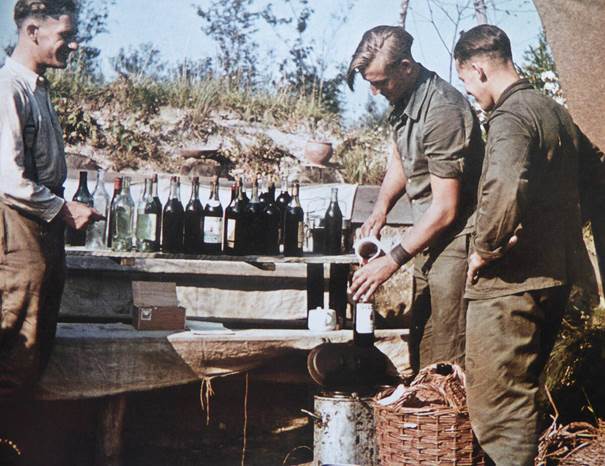
“Late in the evening, the messenger took me to the company, where I met with the lieutenant. As expected, we celebrated our meeting a bit by drinking a little. Then I had to get acquainted with the rest of the personnel. When I was brought before the fighters, we sat down together at the table that had already been set and began to drink thoroughly, because, in spite of the war, it was still a tried and tested way to start any business in this way.” (Armin Scheiderbauer, “Memoirs of a War”).
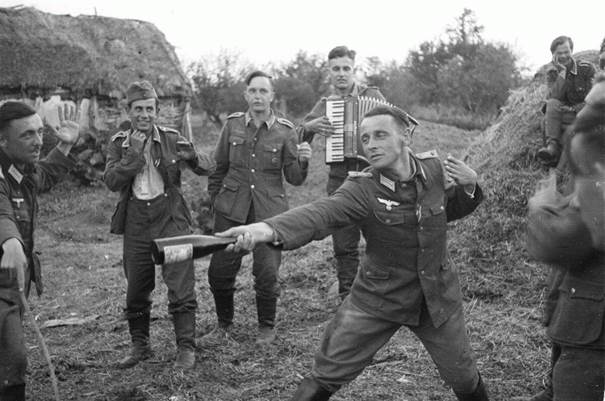
“Nowadays, you can often read about how machine gunners mowed down everyone on the spot. But I, as a participant in those events, find it hard to believe, because the Germans never openly took bullets, they were not fools. I saw this only once, during the storming of Brest in 1944. Then a whole group of Nazis rushed out of the city in our direction, which did not pay any attention to the heavy machine-gun fire. Only later did it become clear that they were all under the influence! They offered practically no resistance, just piled at us in crowds, trying to shoot at the same time and observing absolutely no security, not even forming battle formations. Nine times they went on such senseless attacks. In that battle alone, I probably eliminated up to two hundred fascists with a machine gun” (Nikolai Degtyarev, memoirs).
